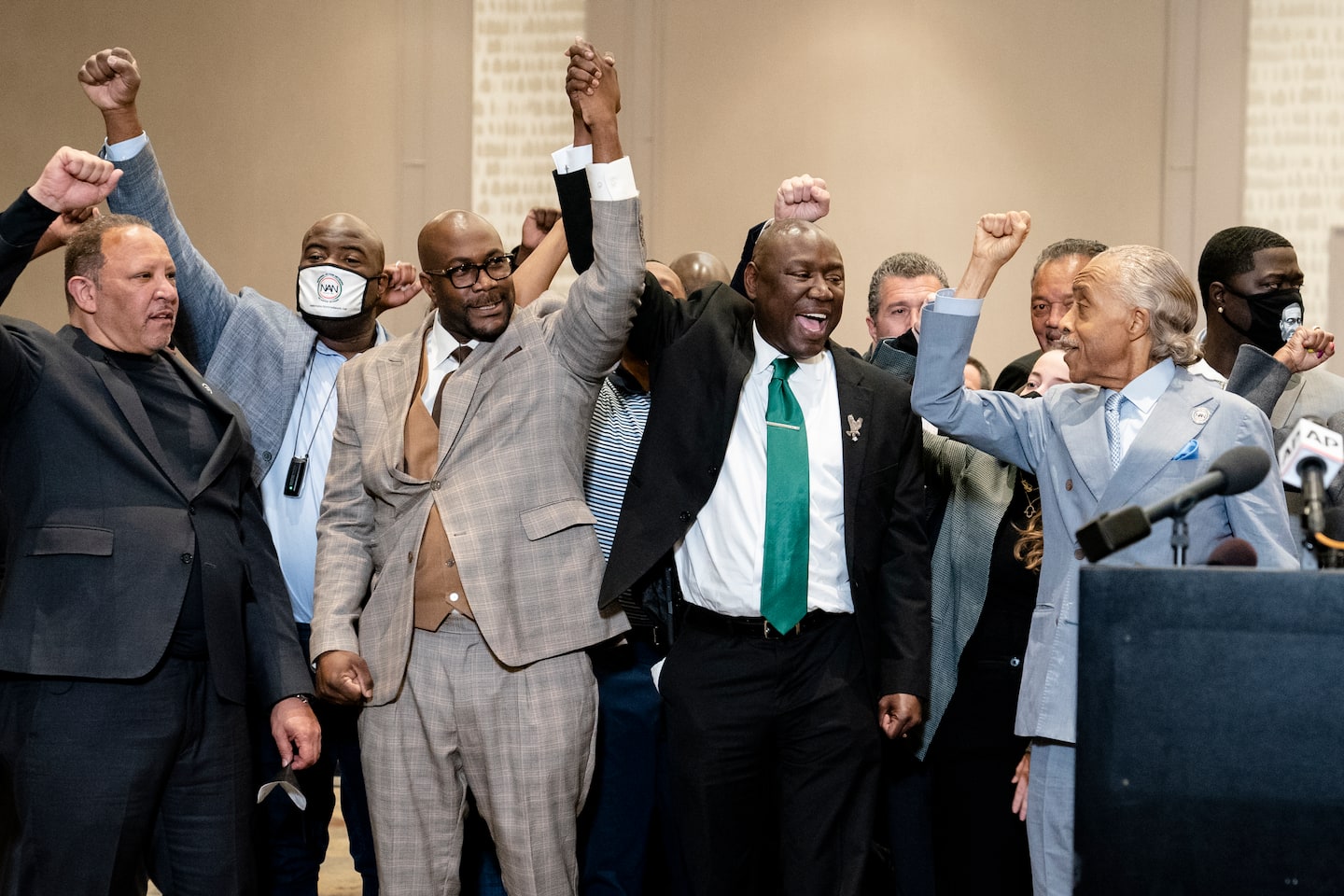For my brother George Floyd, this is what justice feels like

For the past two weeks, I have watched my brother George Floyd die over and over, thousands of times. The video testimony was hard to see. Now it is seared into my waking thoughts and my nightly sleep — what little sleep I get.
I watched as the strangers who stood on that street and saw George slowly, agonizingly die testified about how they pleaded for his life and felt guilty that they weren’t able to save it, sometimes sobbing through their words. They never thought they’d have to stand there and witness his soul leave its body. That included a 9-year-old girl with the word “love” on her shirt, who saw something no child should ever have to see. She will be forever changed by it. Those good people who were there with George at the end, when we were not, are also now part of our family.
I saw tears on the faces of jurors who looked nothing like George or me as they listened to that testimony, and I felt bonds of humanity with them. In contrast to the jury that 66 years ago refused to convict the men who brutalized, maimed and killed Emmett Till, this jury took a decisive stand for justice. As much as this verdict is a vindication for George, it is for Emmett, too.
Over the past 11 months, my family has forged relationships with the families of so many other victims of brutality and over-policing — Breonna Taylor, Daunte Wright, Eric Garner. We are members of a tragic club that we never would have chosen for ourselves. Many of these victims have not had their day in court. This verdict is for them, too.
Our family has absorbed the love of people from all over the world — from Germany, Britain, Australia, Ghana, France and so many other places — who felt a connection to George and were devastated by what happened to him. They put their lives on the line, marching amid a pandemic, and told us they hoped we would get justice. In death, as in life, George brought people together, leading to unlikely bonds.
So many Black people have shared with us how traumatized they were by George’s death, reminding them that it could have been them or their children. And so many White people have shared that their eyes were opened by his death, that they didn’t realize until now just how often people of color are brutalized, their lives trivialized, their right to justice denied. The video had a lot to do with it. People were horrified to literally see someone tortured to death for nine minutes, and they were shocked that the officer displayed no remorse. People around the world had to explain that to their kids, and they didn’t know how.
We saw law enforcement officers such as Minneapolis Police Chief Medaria Arradondo break ranks and call out Chauvin’s behavior for what it was, and Minnesota Attorney General Keith Ellison press for a vigorous prosecution. A crumbling of the blue wall and the start of a new era of law enforcement accountability? We hope and pray.
This verdict is historic, but it shouldn’t be historic to punish people who do bad things, even if they wear a police uniform — especially if they wear a police uniform.
My brother told us a long time ago that his name would be all over the world. We didn’t think it would be like this. This week, our family received a measure of justice because regular citizens and those in authority took the most basic human action: They did the right thing.
It’s up to all of us to build on this moment. We must end the qualified immunity that too often shields law enforcement officers from responsibility, require police to maintain body-camera and dash-cam videos, and ban chokeholds and no-knock warrants. Now, it’s time for the U.S. Senate to do its part and pass the George Floyd Justice in Policing Act, and begin the work of transforming policing in the United States.
What does justice feel like? It feels like maybe we can finally take a breath.
Read more:






